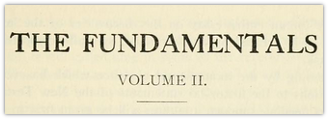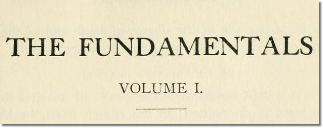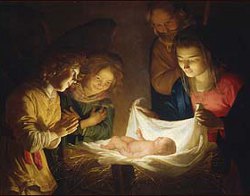God in Christ: The Only Revelation of the Fatherhood of God
[node:22019 collapsed body]

CHAPTER III: GOD IN CHRIST THE ONLY REVELATION OF THE FATHERHOOD OF GOD
BY ROBERT E. SPEER
“They shall put you out of the synagogues: yea, the hour cometh, that whosoever killeth you shall think that he offereth service unto God. And these things will they do, because they have not known the Father nor me.” (John 16:2, 3.)

 [node:22019 collapsed body]
[node:22019 collapsed body] How can Jesus be both the Son of God (John 1:34; 3:36) and God Himself (John 1:1; 20:28)? To the casual reader, this seems implausible. Nonetheless, the Bible is consistent, presenting both as realities. Consequently, both realities are true at the same time or else the Bible is incorrect about one of the most significant issues in its pages. Great are the implications if the Bible is in error on this point.
How can Jesus be both the Son of God (John 1:34; 3:36) and God Himself (John 1:1; 20:28)? To the casual reader, this seems implausible. Nonetheless, the Bible is consistent, presenting both as realities. Consequently, both realities are true at the same time or else the Bible is incorrect about one of the most significant issues in its pages. Great are the implications if the Bible is in error on this point.


Discussion